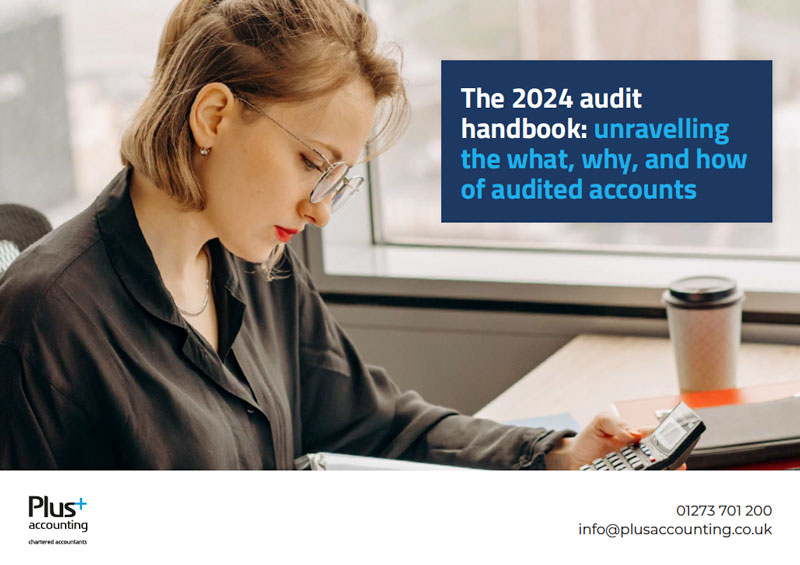An audit is important as it provides credibility to a set of financial statements and gives the shareholders confidence that the accounts are true and fair. It can also help to improve a company’s internal controls and systems.
How are audit fees determined?
Audit fees are normally determined by the time spent completing the audit which depends on the size of the company and the risks attached.
What is an Audit report?
An audit report is a report to the shareholders of a company by an independent auditor of their assessment of whether the financial statements show a true and fair view.
When is an Audit required?
Statutory Audit Requirements
A statutory audit is required if two or more of the following are met:
- Annual turnover is over £10.2 million
- Assets are over £5.1 million
- Average of over 50 employees
Some companies like public companies, licensed insurance companies and banks must have an audit regardless of these criteria. And if more than 10% of the shareholders request an audit it must be done.
For more information you may read the article on voluntary audit. It explains how voluntary audit can prepare businesses for future statutory requirements.
Benefits of External Audits
Increased Stakeholder Confidence
External audits give stakeholders confidence in a company’s financial position and performance. When independent auditors review the financial statements they give shareholders, investors and other interested parties assurance that the numbers are accurate and true. This increased trust, documented in the audit report, can lead to a better reputation and improved investor relations.
Financial Statement Credibility
One of the benefits of external audits by an external auditor is the financial statement credibility. Independent verification by an auditor means the company’s financial reporting is likely to be free from material errors or bias. This transparency is key to decision making and investor and regulator trust.
Fraud Detection and Prevention
Internal audits are key to detecting and preventing fraud within the organisation. Independent auditors review financial records and internal controls and may pick up on discrepancies or suspicious activity that may otherwise go unnoticed. Regular audits will deter fraudulent behaviour by increasing the likelihood of being detected.
Independence and Integrity
External auditors provide an unbiased view of a company’s financial position, unlike internal auditors who may have conflicts of interest. This objectivity is key to accurate reporting and risk management. By being objective external auditors help organisations improve their financials.
Expertise and Continuous Improvement in Audit Practice
External auditors bring specific knowledge and skills to the audit process and can help companies resolve commercial issues. Regular audits will encourage continuous improvement in financial processes and internal controls which can lead to greater efficiency and better financial performance.
Stakeholders
Shareholders and Investors
Communication with shareholders and investors is key. Regular audits give credibility to financial statements so the accounts are true and fair. This builds trust and confidence with shareholders. Our audit reports are a communication tool, an independent view of the company’s financial position.
Key Aspects:
- Transparency: Financial performance updates.
- Feedback: Encourage shareholder questions and input.
- Meetings: Scheduled meetings and reports to keep shareholders informed.
Creditor and Supplier Expectations
Creditor and supplier relationships are key to a company’s operations. They need accurate and timely financial information to make decisions on credit terms and supply agreements. Audits will ensure our financial statements are reliable so we maintain the trust of creditors and suppliers.
Key Aspects:
- Reliability: Providing financial data.
- Trust: Building long term relationships based on transparency.
- Negotiation: Using audit reports in negotiations.
Government Regulations and Public Accountability
Governments require companies to be audited to ensure compliance with laws and regulations. This is more important for public companies, licensed insurance companies and banks. Compliance is not only legal requirement but also helps in maintaining public trust in our operations.
Key Aspects:
- Compliance: Meeting statutory audit requirements.
- Transparency: Showing our commitment to ethical values.
- Public Confidence: Building trust with the public through regular audits.
By engaging with our stakeholders from shareholders to government bodies we increase our accountability and ensure our financials are credible and reliable.
Author: Chris Morey, Director, Plus Accounting
Any views or opinions represented in this blog are personal, belong solely to the blog owner and do not represent those of Plus Accounting. All content provided on this blog is for informational purposes only. of this blog makes no representations as to the accuracy or completeness of any information on this site or found by following any link on this site.
Want to learn more?
Get in touch with our in house expert Chris Morey to see how we can help.

The Audit Handbook: unravelling the what, why and how of audited accounts
September 19, 2023
Let’s take a step back and take a look at the what, why and how of audited accounts in your complete guide to audits.


